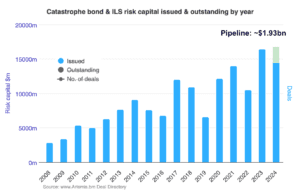How Much Is LLC Insurance

As a Limited Liability Company (LLC) owner, understanding the cost of insurance is crucial for protecting your business. LLC insurance can vary widely in price, depending on several factors. In this article, we’ll break down the costs associated with LLC insurance, explore the different types of coverage available, and provide insights into how you can get the best rates for your business.
What Is The Average Cost Of LLC Insurance?
The average cost of LLC insurance can vary significantly based on the type of coverage you need, the size of your business, and the industry you operate in. On average, LLC owners can expect to pay between $500 and $1,500 per year for a basic general liability policy. However, this is just a ballpark figure, and your actual costs may be higher or lower.
What Is Another Name For LLC Insurance?
LLC insurance is also commonly referred to as Limited Liability Company Insurance or Business Entity Insurance. These terms are often used interchangeably and refer to the same type of coverage designed to protect LLCs from various risks and liabilities.
Why Is LLC Insurance More Expensive Than Sole Proprietorship Insurance?
LLC insurance tends to be more expensive than sole proprietorship insurance because LLCs typically have more complex operations and higher risk exposures. Additionally, LLCs often have more assets to protect, which can increase the cost of coverage. The structure of an LLC also means that the business itself is a separate legal entity, which can lead to higher premiums compared to sole proprietorships.
How Much Does LLC Insurance Cost Per Month?
When broken down into monthly payments, LLC insurance costs can range from $40 to $125 per month for a basic general liability policy. This monthly cost can vary based on the specific coverage options you choose and the overall risk profile of your business.
What Factors Influence Monthly LLC Insurance Costs?
Several factors can influence the monthly cost of LLC insurance, including the size of your business, the industry you operate in, the location of your business, and the amount of coverage you need. Additionally, your claims history and the specific risks associated with your business activities can also impact your monthly premiums.
How Much Is LLC Insurance By State?
The cost of LLC insurance can vary significantly from state to state due to differences in regulations, risk factors, and market conditions. Below, we’ll explore the average costs of LLC insurance in a few key states.
How Much Does LLC Insurance Cost In CA?
In California, the average cost of LLC insurance ranges from $600 to $1,800 per year. This cost can vary based on the specific needs of your business and the type of coverage you select.
How Much Is LLC Insurance in GA?
In Georgia, LLC owners can expect to pay between $500 and $1,500 per year for their insurance coverage. The exact cost will depend on various factors, including the size and nature of your business.
How much Is a Company Insurance In Texas?
In Texas, the average cost of LLC insurance is typically between $550 and $1,700 per year. This range can fluctuate based on the specific risks associated with your business and the coverage options you choose.
How Much Is LLC Insurance in Florida?
In Florida, LLC insurance costs can range from $600 to $1,800 per year. The cost will depend on the unique characteristics of your business and the level of coverage you require.
Average Cost Of LLC Insurance Rates By State Chart
To provide a clearer picture of LLC insurance costs across the United States, we’ve compiled a table with the average annual rates for each state.
State
Average Annual Cost
Alabama
$550 – $1,600
Alaska
$600 – $1,700
Arizona
$500 – $1,500
Arkansas
$550 – $1,600
California
$600 – $1,800
Colorado
$550 – $1,700
Connecticut
$600 – $1,800
Delaware
$550 – $1,600
Florida
$600 – $1,800
Georgia
$500 – $1,500
These figures are averages and can vary based on the specific needs and risk factors of your business.
How Much Is Limited Liability Company Insurance?
Limited Liability Company Insurance, or LLC insurance, is designed to protect your business from various risks and liabilities. The cost of this insurance can vary widely based on several factors, including the size of your business, the industry you operate in, and the specific coverage options you choose.
What Types of Coverage Are Included in LLC Insurance?
LLC insurance typically includes several types of coverage, such as general liability insurance, professional liability insurance, and property insurance. Each type of coverage protects your business from different risks and can be customized to meet your specific needs.
How Can I Reduce the Cost of LLC Insurance?
There are several ways to reduce the cost of LLC insurance, including bundling multiple policies, increasing your deductibles, and implementing risk management practices. Additionally, shopping around and comparing quotes from multiple insurance providers can help you find the best rates.
Key Factors That Affect LLC Insurance Costs
Several key factors can influence the cost of LLC insurance, including the size of your business, the industry you operate in, and your claims history. Understanding these factors can help you better manage your insurance costs and ensure you have the right coverage for your business.
Business Size and Revenue
The size of your business and its annual revenue can significantly impact your insurance costs. Larger businesses with higher revenues typically face higher premiums due to the increased risk and potential for larger claims.
Industry and Risk Factors
The industry you operate in and the specific risks associated with your business activities can also affect your insurance costs. High-risk industries, such as construction or manufacturing, often face higher premiums due to the increased likelihood of accidents and claims.
How To Get LLC Insurance Quotes
Getting LLC insurance quotes is a straightforward process that can help you find the best coverage at the most competitive rates. Here are some steps to follow when obtaining quotes for your LLC insurance.
Gather Information About Your Business
Before you start requesting quotes, gather all the necessary information about your business, including its size, revenue, industry, and any previous claims history. This information will help insurance providers give you accurate quotes.
Compare Quotes from Multiple Providers
It’s essential to compare quotes from multiple insurance providers to ensure you’re getting the best rates. Use online comparison tools or work with an insurance broker to gather quotes from different companies.
LLC Insurance Cost Calculator
An LLC insurance cost calculator can be a valuable tool for estimating your insurance costs. These calculators typically require you to input information about your business, such as its size, industry, and coverage needs, to provide an estimate of your insurance premiums.
How to Use an LLC Insurance Cost Calculator
Using an LLC insurance cost calculator is simple. Enter the required information about your business, and the calculator will generate an estimate of your insurance costs. This can help you budget for your insurance expenses and compare quotes from different providers.
LLC Insurance Cost Vs Sole Proprietorship Insurance
When comparing LLC insurance costs to sole proprietorship insurance, it’s essential to understand the differences in coverage and risk factors. LLC insurance tends to be more expensive due to the increased complexity and risk associated with LLCs.
Is Sole Proprietorship Insurance the same as LLC Insurance?
No, sole proprietorship insurance is not the same as LLC insurance. Sole proprietorship insurance typically covers the individual owner and their business activities, while LLC insurance covers the business entity itself and its operations. This difference in coverage can lead to variations in insurance costs.
What Does LLC Insurance Cover In U.S.?
LLC insurance in the U.S. typically covers a range of risks and liabilities, including general liability, professional liability, and property damage. These coverages can protect your business from lawsuits, accidents, and other unforeseen events.
What Is A Good Deductible For LLC Insurance?
A good deductible for LLC insurance depends on your business’s financial situation and risk tolerance. Higher deductibles can lower your premiums but may require you to pay more out-of-pocket in the event of a claim. It’s essential to balance your deductible with your ability to cover potential expenses.
What insurance does an LLC need?
An LLC typically needs several types of insurance, including general liability, professional liability, and property insurance. Depending on your industry and specific business activities, you may also need additional coverages, such as workers’ compensation or commercial auto insurance.
Common Exclusions in LLC Insurance Policies
LLC insurance policies often have exclusions that limit coverage for certain risks or activities. Understanding these exclusions can help you ensure you have the right coverage for your business.
What Are Some Common Exclusions?
Common exclusions in LLC insurance policies may include intentional acts, employee injuries, and certain types of property damage. It’s essential to review your policy carefully and discuss any exclusions with your insurance provider to ensure you have adequate coverage.
How Much Coverage Do I Need As A LLC Owner?
The amount of coverage you need as an LLC owner depends on several factors, including the size of your business, the industry you operate in, and your risk tolerance. It’s essential to work with an insurance professional to determine the appropriate level of coverage for your specific needs.
How to Determine Your Coverage Needs
To determine your coverage needs, consider the potential risks and liabilities your business faces. Evaluate your assets, revenue, and any previous claims history to ensure you have adequate protection. An insurance professional can help you assess your needs and recommend the right coverage options.
Is LLC Insurance Required By Law In America?
LLC insurance is not typically required by law in most states, but it is highly recommended to protect your business from various risks and liabilities. Some industries or contracts may require specific types of insurance, so it’s essential to understand your legal obligations.
Are There Penalties for Not Having LLC Insurance?
While there are generally no legal penalties for not having LLC insurance, the financial consequences of not being adequately insured can be significant. Without insurance, your business may be responsible for covering the costs of lawsuits, accidents, and other unforeseen events, which can be financially devastating.
Types of LLC Insurance
There are several types of LLC insurance available to protect your business from various risks and liabilities. Understanding these different types of coverage can help you choose the right policies for your specific needs.
Is LLC insurance required by law?
As mentioned earlier, LLC insurance is not typically required by law, but it is highly recommended. Some industries or contracts may require specific types of insurance, so it’s essential to understand your legal obligations and ensure you have the necessary coverage.
How to Lower Your LLC Insurance Premiums
There are several strategies you can use to lower your LLC insurance premiums, including bundling multiple policies, increasing your deductibles, and implementing risk management practices. Additionally, shopping around and comparing quotes from multiple insurance providers can help you find the best rates.
Implementing Risk Management Practices
Implementing risk management practices can help reduce your insurance premiums by minimizing the likelihood of claims. This can include safety training for employees, regular maintenance of equipment, and implementing security measures to protect your business.
LLC Insurance Vs Partnership Insurance
When comparing LLC insurance to partnership insurance, it’s essential to understand the differences in coverage and risk factors. LLC insurance typically covers the business entity itself, while partnership insurance covers the individual partners and their business activities.
What Are the Key Differences?
The key differences between LLC insurance and partnership insurance include the structure of the coverage and the specific risks each type of business faces. LLC insurance tends to be more comprehensive and can cover a wider range of risks, while partnership insurance may be more focused on the individual partners and their activities.
Taking Action
Now that you have a better understanding of LLC insurance costs and coverage options, it’s time to take action to protect your business. Start by gathering information about your business and comparing quotes from multiple insurance providers. Consider working with an insurance professional to ensure you have the right coverage for your specific needs. By taking these steps, you can secure the protection your business needs and gain peace of mind.
Frequently Asked Questions
What is the average cost of LLC insurance?
The average cost of LLC insurance ranges from $500 to $1,500 per year, depending on various factors such as the size of your business, industry, and coverage needs.
Is LLC insurance required by law?
LLC insurance is not typically required by law, but it is highly recommended to protect your business from various risks and liabilities. Some industries or contracts may require specific types of insurance.
How can I lower my LLC insurance premiums?
You can lower your LLC insurance premiums by bundling multiple policies, increasing your deductibles, implementing risk management practices, and comparing quotes from multiple insurance providers.
What types of coverage are included in LLC insurance?
LLC insurance typically includes general liability, professional liability, and property insurance. Additional coverages may be needed depending on your industry and specific business activities.





